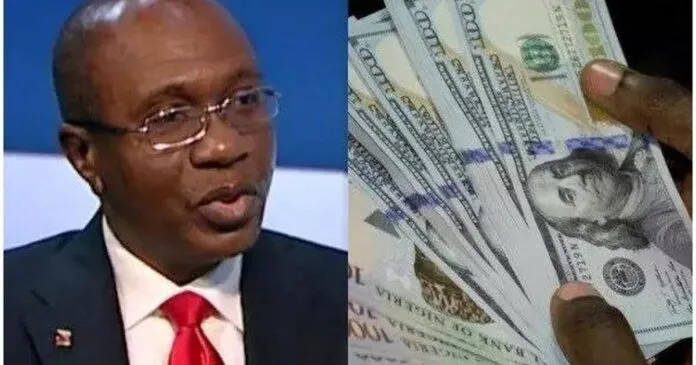Business & Economy
CBN’s foreign reserves decline by $2.2 billion (YTD)

Nigeria’s foreign reserves have fallen by $2.202 billion to $38.318 billion as of September 29, 2022, from $40.520 billion as of December 31, 2021. This is a 5.42% decrease in foreign reserves.
Despite rising oil prices this year, Nigeria’s foreign exchange reserves have been depleted by billions of dollars. The country’s reserves fell by $706 million last month, down from $39.024 billion on September 1, 2022.
Furthermore, the Nigerian economy is suffering from a lack of foreign exchange as currency traders continue to complain about limited forex liquidity, forcing the local currency to decline more in the FX market. This forex crisis is present despite the central’s bank’s intervention in the forex market.
Nonetheless, the exchange rate at the official window has been relatively stable but mostly inaccessible to most Nigerians. The exchange rate at the investors and exporters window trades around N437.03/$1, while the Black market rate is around N735/$ at the time of writing.
What the CBN is saying
The apex bank would continue its intervention policy with the hope that the oil price surge would boost the reserves. This was revealed by the CBN governor, Godwin Emefiele, as he briefed the media following the end of the monetary policy committee meeting.
He said “the Committee noted the marginal increase of 0.39% in the level of external reserves to US$38.46 billion at end-August 2022 from US$38.31 billion at end-July 2022 despite continued demand pressure. With crude oil price forecast to continue to moderate in the short to medium term, Members urged the Bank not to relent on the various policies put in place to support non-oil exports to shore up external reserves.”
What you should know
According to the Financial Times, the Opec+ oil coalition is considering a significant drop in production to support plummeting prices as the group prepares to meet in person for the first time since March 2020.
Brent, the international oil benchmark, surged 3% to $87.67 per barrel amid news that the producer group was considering curtailing production. The contract is still significantly below the high of $130/b reached earlier this year in the aftermath of the Russian invasion of Ukraine. Nonetheless, Nigeria’s central bank is counting on rising oil prices to enhance its reserves.
Foreign reserves are assets maintained on reserve by a monetary authority in foreign currencies, according to the Central Bank of Nigeria. These reserves are utilized to sway monetary policy decisions. Foreign currencies, deposits, treasury bills, deposits, and other government securities fall into this category.
The International Monetary Fund (IMF) asserts that international reserves are those external assets that are available to and are controlled by a country’s monetary authorities.
Nigeria’s external reserve is very important in defending the naira and is used to cover the country’s huge import bills. An increasing external reserve suggests a higher inflow from crude oil earnings, inflow from foreign investors, and external loans.
